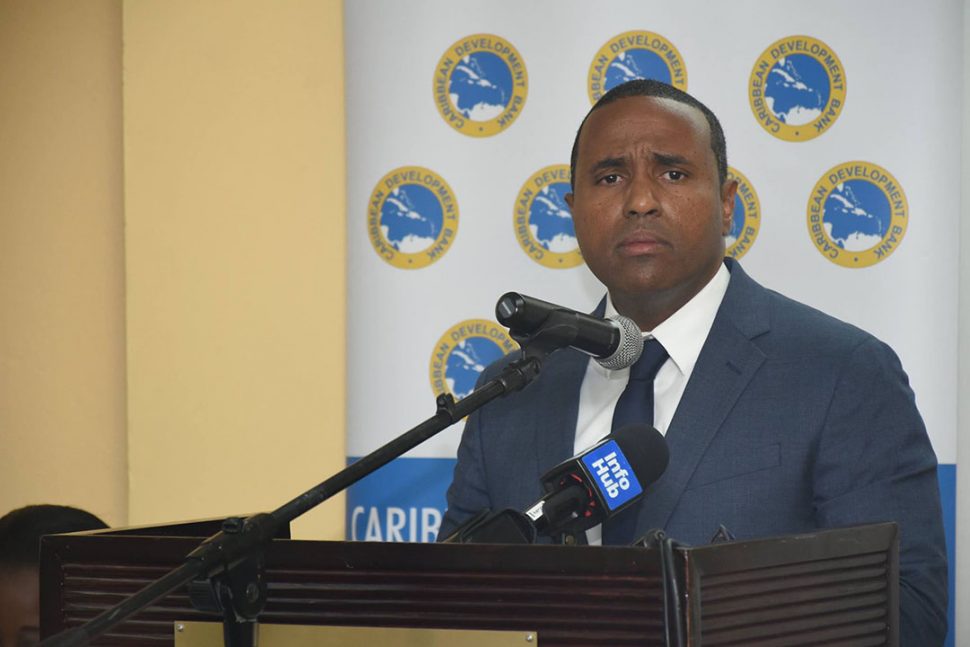If Caribbean states are serious about utilising the private sector to pull their economies out of decline, it is imperative that they do more to improve the ease of doing business, the Caribbean Development Bank (CDB) says.
CDB Director of Economics Dr. Justin Ram, earlier this week used the forum of the Bank’s annual news conference to point to the role that excessive governmental regulations is playing in hindering the creation of medium, small and micro enterprises (MSMEs).
Several Caribbean Governments including the Government of Guyana have been continually criticised for excessive ‘red tape’ and layers of bureaucracy associated with investing in countries in the region and Ram is reported to have told the news conference that it is imperative that the ease of doing business in the region be improved if Caribbean countries are serious about having the private sector play a role in reversing decline in several countries.
Ram noted that while ten years ago the average rank for the region on the Ease of Doing Business Index stood at of 81 out of 181 countries, the last report showed a significant decline to an average ranking of 126 out of 191 countries.
“We have been moving in the wrong direction. It is time for us to put a stop to that trend and move back up that scale so we can be competitive globally, so that global and domestic investors can look at the Caribbean as a place where they can do business and earn good rates of return,” he said.
Guyana is among the countries in the region that have long been accused by some potential overseas investors of having ‘multi-layered investment qualification procedures that necessitate investment proposals being ‘vetted’ at various levels before official clearance is received. In some countries in the region investment inquiries are believed to have become the purview of influential middlemen who use their access to key state officials to facilitate the green-lighting and fast-tracking of investment inquiries.
In Guyana, the commencement of oil and gas recovery is expected to increase the volume of overseas investment inquiries this year, a circumstance which the state-run Guyana Office for Investment (GO-Invest) said it had anticipated. GO-Invest had also said that it expected an uptake in local investments as businesses familiarise themselves with the requirements of the oil and gas industry and begin to show an interest in investing in local content-related sectors. Local business sources have told Stabroek Business, however, that there was a need for GO-Invest and other state agencies responsible for facilitating both local and overseas investment inquiries to enhance their capacity to expedite those inquiries.
The CDB has continually advised its Borrowing Member Countries (BMCs) that the transformation of their economies was likely to be driven through private sector-led growth and while Ram is reported to have expressed the view that some CARICOM member states were making progress in their capacity to ‘process’ investment inquiries the general view appears to be that the procedures remain characterized by too much red tape and bureaucracy.
At the press conference Ram singled out Jamaica as an example of a Caribbean country with a “robust private sector” which he said had taken initiatives to improve the ease of doing business on the island through the implementation of government-driven reforms over the past five years which he said had sought to improve the business environment.
Ram said as well that the Bank’s interventions around MSME’s had been centred around “the need for government to reduce regulation to make it easier for the private sector to set up so that if an entrepreneur wants to establish a business in your country that the process is not onerous and can be done in very quick time, make it easier to pay taxes, and make it easier to import and export goods out of the port. These are all factors that have a lasting impact on the doing business environment in our countries and therefore spur entrepreneurial activity,” Ram said.
The CDB official said that it was for this reason that the Bank considered it important that policy-makers in its member countries “have dialogue with the private sector to find out what improvements are needed” so that private sector-led growth could be increased. He said that while there had been improvements in some countries in this regard “there is still a long way to go for many of them.”









